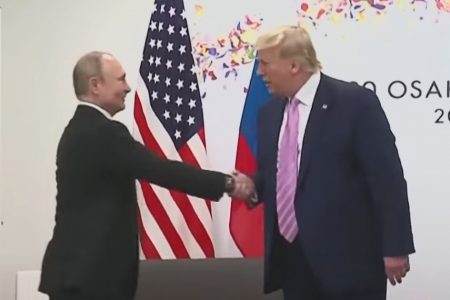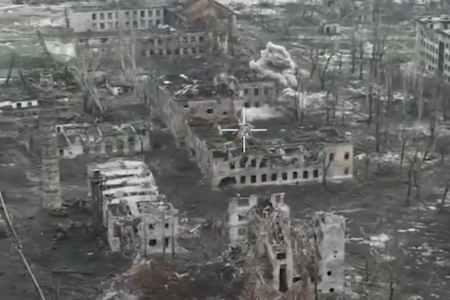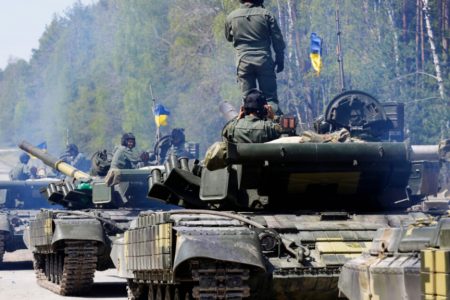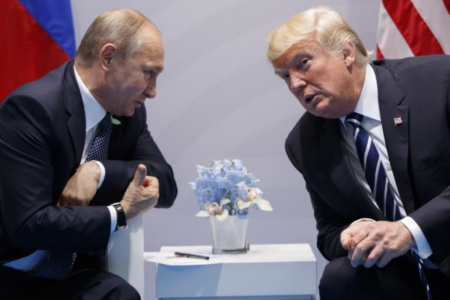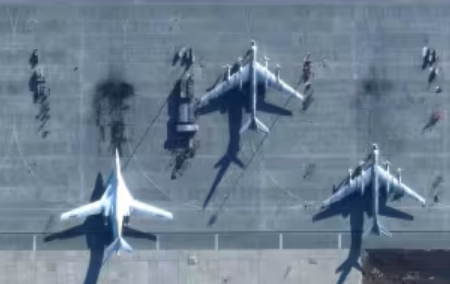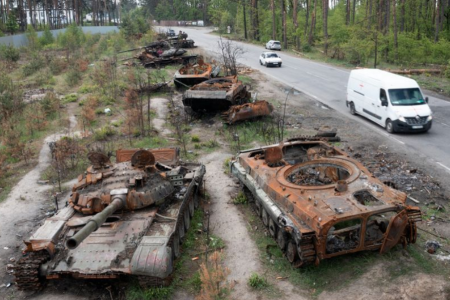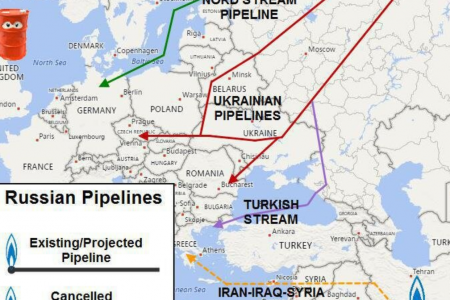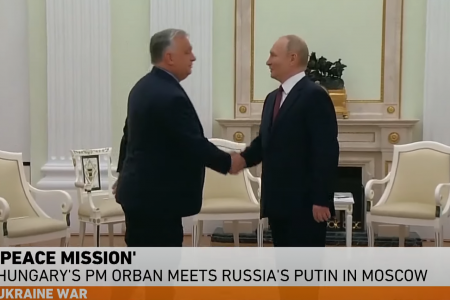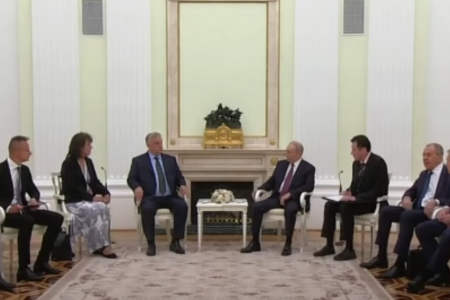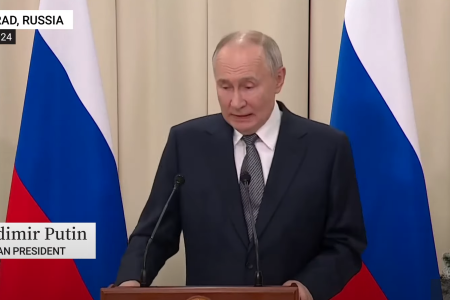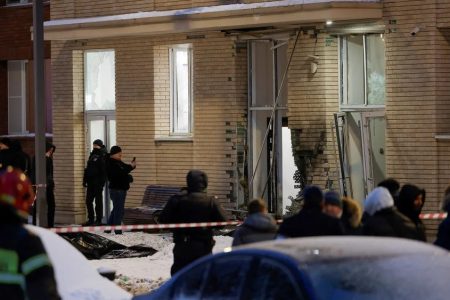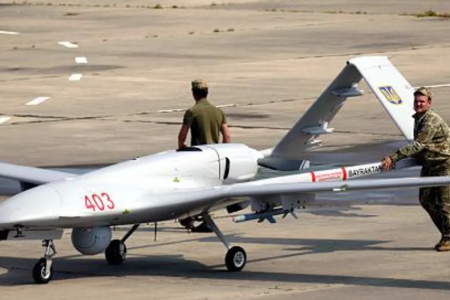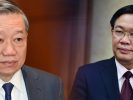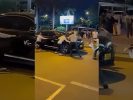
The year 2021 shows the Hanoi government’s crackdown on dissidents, which international human rights activists and monitors consider to be the worst in recent years amid the pandemic and the neglect of the West world.
The government’s crackdown on dissenting voices in Vietnam in 2021 opened in January with the trial of members of the Independent Journalists Association of Vietnam (IJAVN), including its founder and President Pham Chi Dung, and ended with a series of trials of land rights activists and rights advocates this month, including prominent journalist Pham Doan Trang.
Mr. Dung, a well-known blogger for VOA, was sentenced to 15 years in prison and Ms. Trang, who is internationally recognized for her fight for democracy and human rights in Vietnam, was sentenced to 9 years in prison, an unusual sentence longer than the time suggested by the Procuracy. These convictions are seen as a “shame” of the Hanoi government towards domestic dissidents, despite being condemned by Western countries, including the US, and human rights organizations.
“Vietnam has committed widespread human rights abuses, systematically hunting down community activists, human rights defenders, and dissidents, demonstrating a Hanoi’s plan is to eliminate any opposition to its rule,” said Phil Robertson, Deputy Asia Director at Human Rights Watch about the human rights situation in Vietnam this year.
2021 is the time for the 13th Party Congress as well as the National Assembly election for the next five-year term. International human rights and democracy advocacy groups have accused Vietnam of intensifying its suppression of dissenting voices and online censorship around this time.
Among them is the Clean Newspaper group, consisting of five independent journalists who specialize in uncovering corruption cases of local officials and “dirty” BOT stations in Vietnam. The group was probed in April, just before the 15th National Assembly elections, and was sentenced in late October to a total of 14 years in prison for “abusing democratic freedoms.”
In addition, Vietnam also arrested two independent candidates running for the National Assembly of Vietnam, including Mr. Le Trong Hung, who wanted to put the Constitution in schools but will be put on trial on December 31 and face up to 12 years in prison.
“Vietnam’s human rights in 2021 will be worse than in both 2020 and the previous year, especially the Vietnamese Communist (Party) they use two controversial articles “conducting anti-state propaganda under Article and “abusing democratic freedom” per Article 331 of the Criminal Code to suppress dissenters and freedom of expression,” Vu Quoc Ngu, director of Defense the Defenders (DTD) told VOA.
Many bloggers and social media users critical of the Communist Party were also arrested or put on trial this year on charges from the authorities such as “conducting propaganda against the state” and “abusing democratic freedoms” including “taking advantage of the COVID-19 pandemic to spread bad news to destroy the government’s prestige.”
Statistics by the DTD and the Vietnam Human Rights Network show that by the end of May this year, there were 288 prisoners of conscience being held in harsh conditions in Vietnam, although Hanoi has always denied that “There is no such thing as a prisoner of conscience” in Vietnam. In a letter sent to Vice President Kamala Harris prior to his visit to Vietnam in August, the two organizations said that from 2020 to 2021, the Vietnamese government continues to violate basic human rights, from discrimination, arbitrary treatment, arrest and detention, violation of fair trial to restriction of the right to freedom of religion, freedom of opinion and expression, and freedom of association.
A report by the nonprofit organization advocating free speech for Vietnam, Project 88, and the US Global Human Rights Practice (GHRC) submitted to the United Nations Human Rights Council in early November said: that the Vietnamese government’s systematic repression targets freedom of expression online.
Hands-free repression
“Vietnam has clearly taken advantage of the COVID-19 pandemic and the distraction of the international community to try to finish off its adversaries,” said Robertson of the reasons for the state of human rights worsened over the past year in Vietnam, implying dissidents are “rivals” of the ruling Communist Party.
With the same comment, Mr. Ngu, who was awarded the Human Rights & Rule of Law Award by the Ministry of Foreign Affairs of France and Germany in 2019, said that the pandemic and the indifference of Western governments are the reasons why the Hanoi government continues its intensified repression of human rights in the past year.
“In the context that the world is focusing on controlling the COVID pandemic, (Western countries) are less interested in Vietnam’s human rights situation and so the Vietnamese Communist government has free hands to suppress it.”, said Mr. Ngu, who was detained for participating in anti-China protests in Hanoi in 2011. “International and Western countries also have some weak reactions to the repression of the Communist authorities, but to the West, they still value more economic interests with Vietnam. Like the United States, besides the economy, it also wants to take advantage of Vietnam to make an outpost against China.”
Despite the calls of human rights organizations and even members of the European Union, the EU has ratified the Free Trade Agreement (EVFTA) and Investment Protection Agreement (EVIPA) with Vietnam. In the past year, the US government has also strengthened security and trade ties with Vietnam with two high-level visits by Vice President Harris and Defense Secretary Lloyd Austin. After these visits, the Communist Party continued to suppress dissent and advocates for democracy and human rights in Vietnam.
“Unfortunately, the security situation in the South China Sea and Vietnam’s new role as an alternative to China in the production and supply chains, have pushed human rights issues to the margins.” Mr. Robertson said. “The US and its allies are allowing Vietnam to escape significant and systematic human rights abuses, and this needs to stop.”
Unlike the administration of President Donald Trump, the administration of President Joe Biden places human rights at the heart of US foreign policy with countries around the world. However, with China being the biggest security threat to the United States, the current and future US administration will always put counterbalancing and containing China’s influence first. According to Mr. Robertson and Mr. Ngu, that means human rights will be secondary.
“The human rights situation is literally getting worse by the day (in Vietnam),” said Mr. Robertson. “And there will certainly be more prosecutions in 2022.”
Agreeing, Mr. Ngu said that dissidents and civil society in Vietnam will find it increasingly difficult to operate if the Hanoi government is valued by the West for security and commercial interests. According to him, the arrest and repression will probably be similar or greater than in the last two or three years.
On Robertson called on the US and its allies to “make Hanoi pay” if Vietnam does not stop its systematic human rights repression, and said that the trade sanctions are related to human rights violations and labor should also be put in place.
“This not only means Magnitsky-style sanctions on top leaders but also actual action to arrest and hold some accountable,” said Robertson. speak.
According to Mr. Ngu, a truly stable Vietnam, where democracy and dissenting voices are not suppressed by one-party rule, will be better for American and Western investors than when they enter the country. Mr. Ngu hopes that in the coming years, the Biden administration will really attach importance to human rights when approaching global issues with countries, including Vietnam.
Thoibao.de (Translated)



